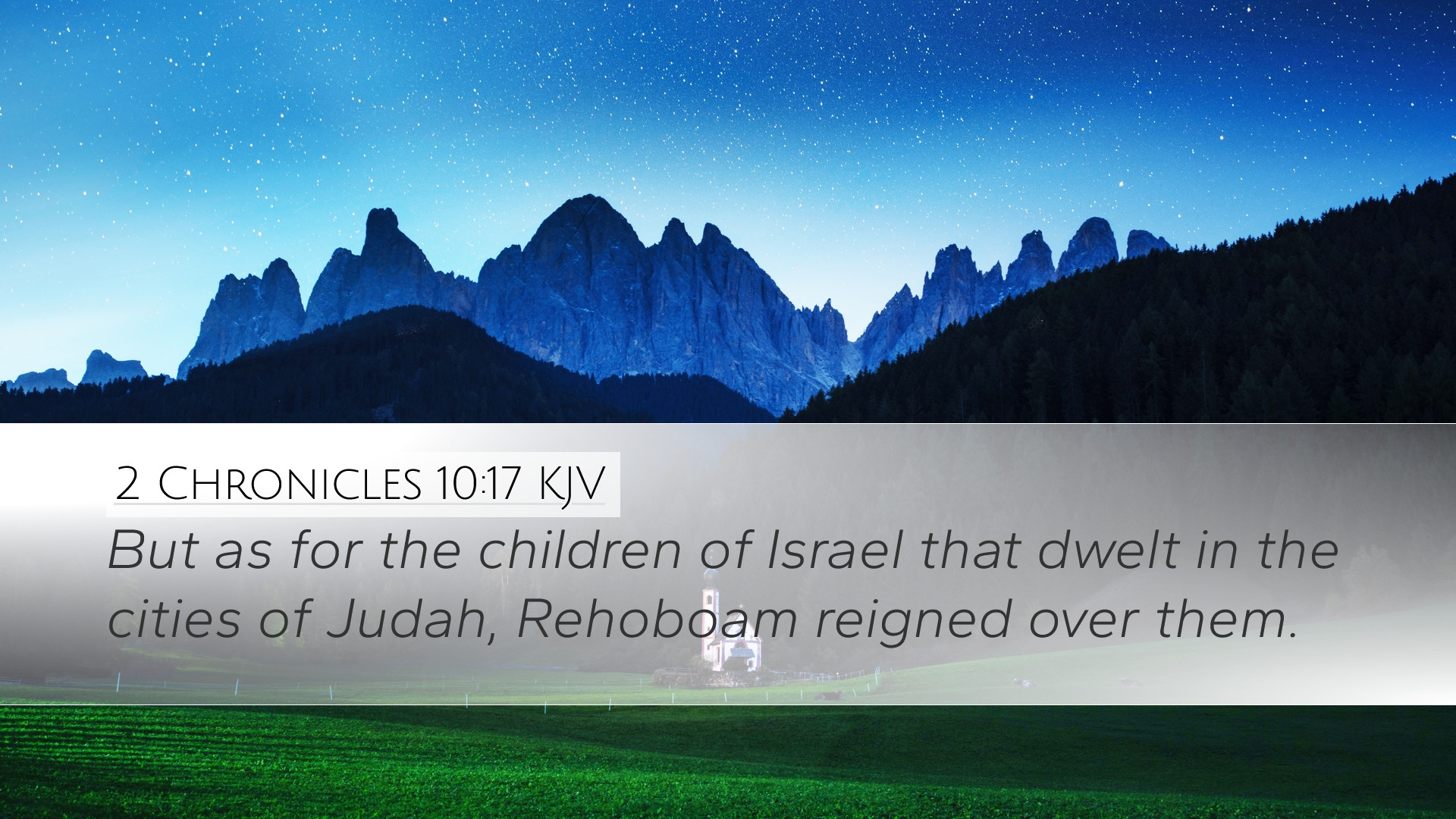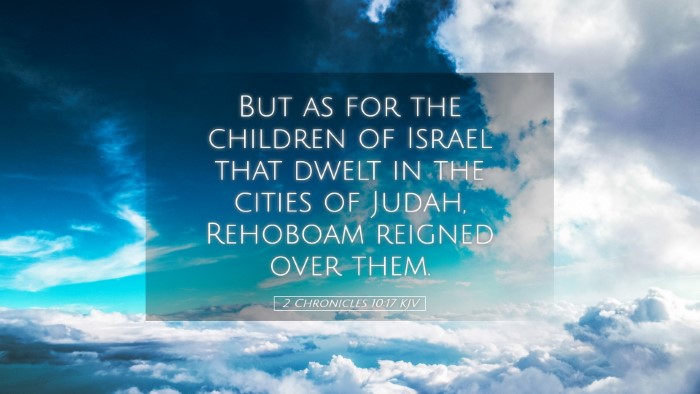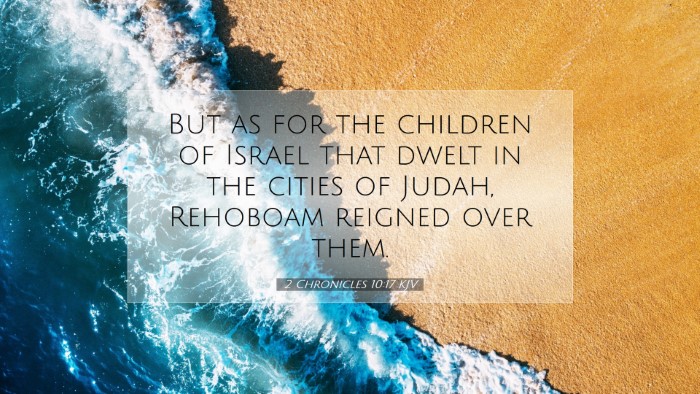Commentary on 2 Chronicles 10:17
Text of 2 Chronicles 10:17: “But as for the children of Israel who dwelt in the cities of Judah, Rehoboam reigned over them.”
This verse marks a significant moment in the history of Israel, highlighting the division of the kingdom following the death of Solomon. The implications of Rehoboam’s reign and the subsequent civil strife are pivotal for understanding the theological and historical narrative of the Bible.
Historical Context
The events surrounding Rehoboam's ascension to the throne must be viewed through the lens of the political and social conditions of the time. Following Solomon's reign, Israel faced both internal and external pressures. The high taxation and forced labor instituted by Solomon led to unrest among the people, particularly among the tribes of Israel.
-
Matthew Henry: Henry notes that the division was a direct consequence of Solomon's practices, which had not been properly addressed by Rehoboam. He emphasizes the necessity of wise leadership in handling grievances and the critical role of counsel in governance.
-
Albert Barnes: Barnes states that Rehoboam's actions reflect a pattern of defiance against wise counsel, leading to the people's rejection of his rule. His commentary emphasizes how this sets the stage for the profound division between Judah and Israel.
-
Adam Clarke: Clarke highlights that Rehoboam’s reign initiated a struggle for power that would have long-lasting repercussions. He speaks to the religious implications of the division as the tribes of Israel would increasingly stray from Yahweh, leading to idolatry.
Theological Insights
The theological implications of Rehoboam's governance can be explored through several lenses:
-
Leadership and Responsibility: Rehoboam's failure to listen to the elder's advice illustrates the grave consequences of poor leadership. His decision to consult with young advisors demonstrates a lack of maturity and wisdom, which resulted in disunity among the tribes.
-
The Role of Divine Providence: The division of the kingdom can also be seen as a fulfillment of God’s promise to Jeroboam. This serves as a reminder that God's plans often unfold through human choices, even when those choices lead to discord.
-
Consequences of Sin: The narrative serves as a cautionary tale about the consequences of sin and the patterns of human behavior that lead to spiritual decline. It reflects the cyclical nature of Israel's rebellion against God and the subsequent judgment that follows.
Impact on Israel’s Future
The schism initiated by Rehoboam's reign set the stage for a tumultuous period in Israel’s history. The separation of Israel into the northern and southern kingdoms had implications for prophecy, worship, and the identity of the Israelites.
-
Matthew Henry: Henry stresses the permanent nature of this division, as the people of Israel would be characterized by division and conflict. The repercussions would not only affect the political landscape but also lead to varied worship practices and the rise of false idols in the northern kingdom.
-
Albert Barnes: Barnes posits that the duality of the kingdoms would ultimately lead to differing destinies, with Israel experiencing a steep decline into sin and idolatry while Judah would retain some semblance of fidelity to Yahweh under its Davidic lineage.
-
Adam Clarke: Clarke points out that the hearts of the people were swayed away from God as loyalty shifted, emphasizing how the consequences of Rehoboam’s decisions reverberated through centuries, culminating in the eventual conquest of both kingdoms.
Lessons for Today
The narrative surrounding Rehoboam's rule offers vital lessons for contemporary leaders and individuals alike:
-
The Importance of Listening: One of the most critical lessons is the value of wise counsel. Leaders must be willing to listen to advice from those with more experience, as they may have insights that can prevent significant errors.
-
Unity in Diversity: The division in Israel highlights the dangers of strife and discord. As contemporary faith communities face similar divides, there is a call for unity in the Body of Christ, acknowledging diverse perspectives while striving for common ground.
-
Recognizing God’s Sovereignty: The unfolding events in this passage remind believers of God's overarching sovereignty. Even when human leaders fail, God's purposes will ultimately prevail—which can be a source of hope amid chaos and division.
-
The Weight of Decisions: Individuals today are reminded of the long-term impact of their choices. Just as Rehoboam's decisions altered the course of history, personal decisions today can shape the future of family, community, and faith.
Conclusion
2 Chronicles 10:17 encapsulates a pivotal moment in biblical history, emphasizing the frailty of human leadership and the prevailing hand of God in the heart of crises. Through careful reflection on the counsel of public domain commentaries, readers are encouraged to glean insights that remain relevant across generations. The implications of Rehoboam's reign are not just historical but serve as perennial lessons for leaders in various spheres of life.


